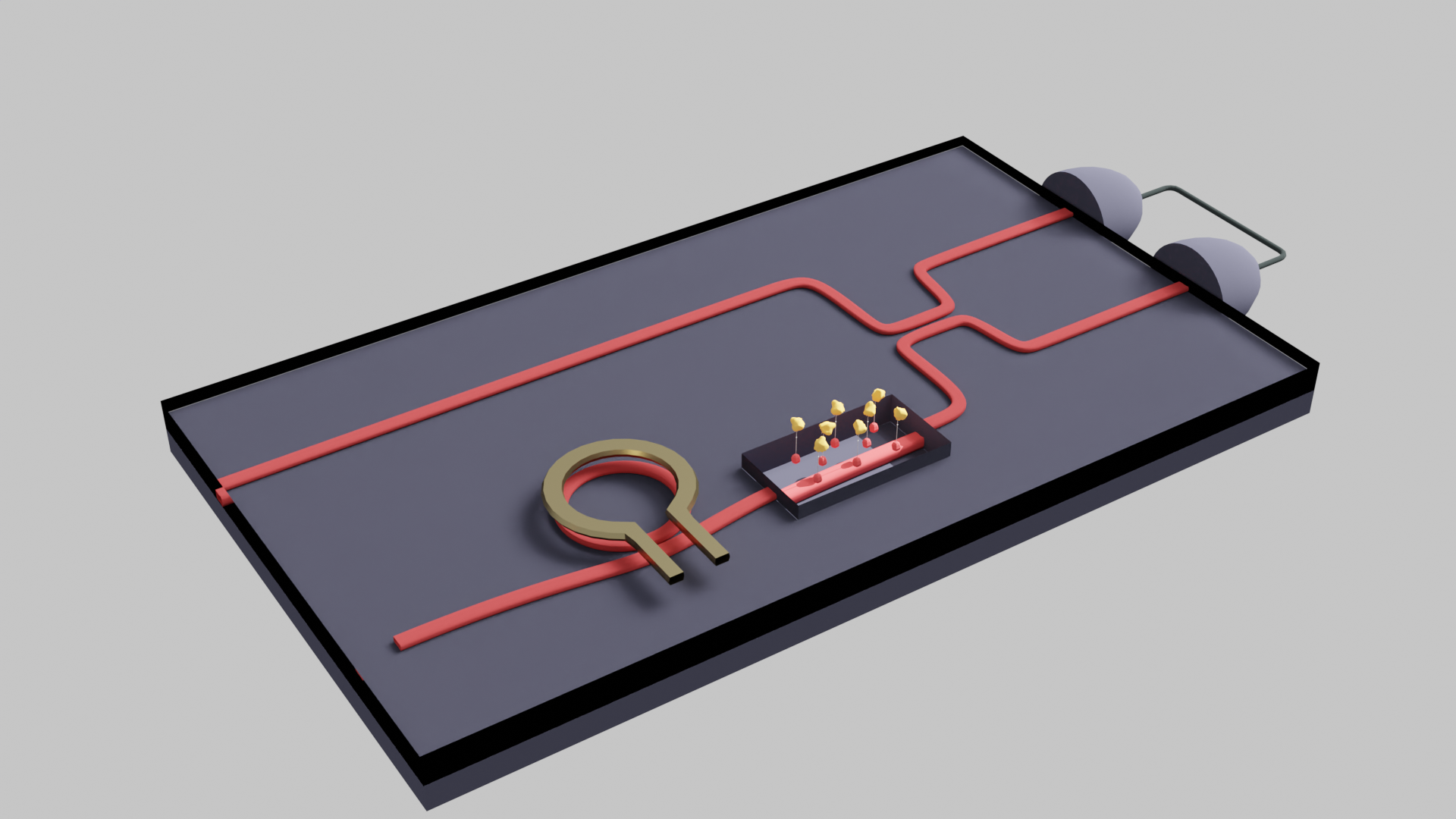Dutt is PI on NSF-Funded Quantum Research Grant
It’s been dubbed the “second quantum revolution,” and the pace is accelerating. Nearly a century after quantum mechanics enabled the development of transistors and lasers, researchers are manipulating phenomena such as quantum entanglement for a myriad of purposes, including computing, sensing, and measurement. “Quantum mechanics involves phenomena such as superposition and ‘spooky action at a distance,’ where a particle that is in New York could be correlated with one in Los Angeles, in a way that classical physics can’t explain,” says UMD mechanical engineering assistant professor Avik Dutt, who specializes in this exciting field of research. “Quantum sensing aims to use these unusual properties to improve sensitivity, detection power, and resolution.” On Tuesday (August 22), the National Science Foundation (NSF) announced it has awarded a $1 million, three-year grant to a multi-institutional team, led by Dutt, which aims to devise ways to overcome existing barriers to further progress in quantum sensing. Co-PIs are Paul Lett (Joint Quantum Institute–NIST/UMD), Jelena Vuckovic (Stanford University), and Peter Maurer (University of Chicago). Read the NSF announcement here. The team is one of 18 from around the country that successfully competed for grants awarded by the NSF as part of its Quantum Sensing Challenges for Transformational Advances in Quantum Systems program. Collectively, the teams will conduct a broad range of exploratory research activities, from measuring the height and density of mountains with an ultraprecise atomic clock to revealing the inner functions of living cells with quantum-entangled particles of light, the NSF said. “A new breed of sensors may one day allow doctors to pinpoint infections inside individual cells, or geologists to find subterranean mineral deposits without lifting a shovel,” it said. Dutt and his colleagues will be honing in on as-yet unsolved challenges. Notably, while quantum sensors can offer more advanced sensing capabilities compared to their classical counterparts, these gains come at the price of vastly increased complexity. The level of complexity, in turn, makes it hard to implement quantum sensors at scale. The researchers will seek to overcome these hurdles, in part, through a technique known as “squeezing light,” which involves compressing the noise–that is, random fluctuations–produced by a laser beam as a result of the Heisenberg Uncertainty Principle. The result is a “quiet” beam with specifically tailored noise redistribution that can be used for precision sensing and detection. Dutt and his students, working at the Maryland NanoCenter’s FabLab, along with Lett’s and Vuckovic’s teams, will engineer the devices and systems needed to accomplish this, while Maurer’s team at the University of Chicago will apply their innovations to chemical and biomolecular detection. Dutt, who joined the UMD faculty in 2022, conducts collaborative research with a number of institutes, centers and labs at UMD with an interest in quantum engineering and nanotechnology, including the Maryland NanoCenter and the IonQ-UMD National Q-Lab. He holds a joint appointment with the Department of Mechanical Engineering (ME) and the multidisciplinary Institute for Physical Science and Technology (IPST). He heads up ME’s and IPST’s newly-launched FearLess Optics, Quantum Engineering & Technology (FLoQuET) Lab, which focuses on quantum engineering, photonics, and nonlinear optics. Ultra-fast computing and ultraprecise sensing are among the potential applications.
Related Articles: August 22, 2023 Prev Next |


